Menu
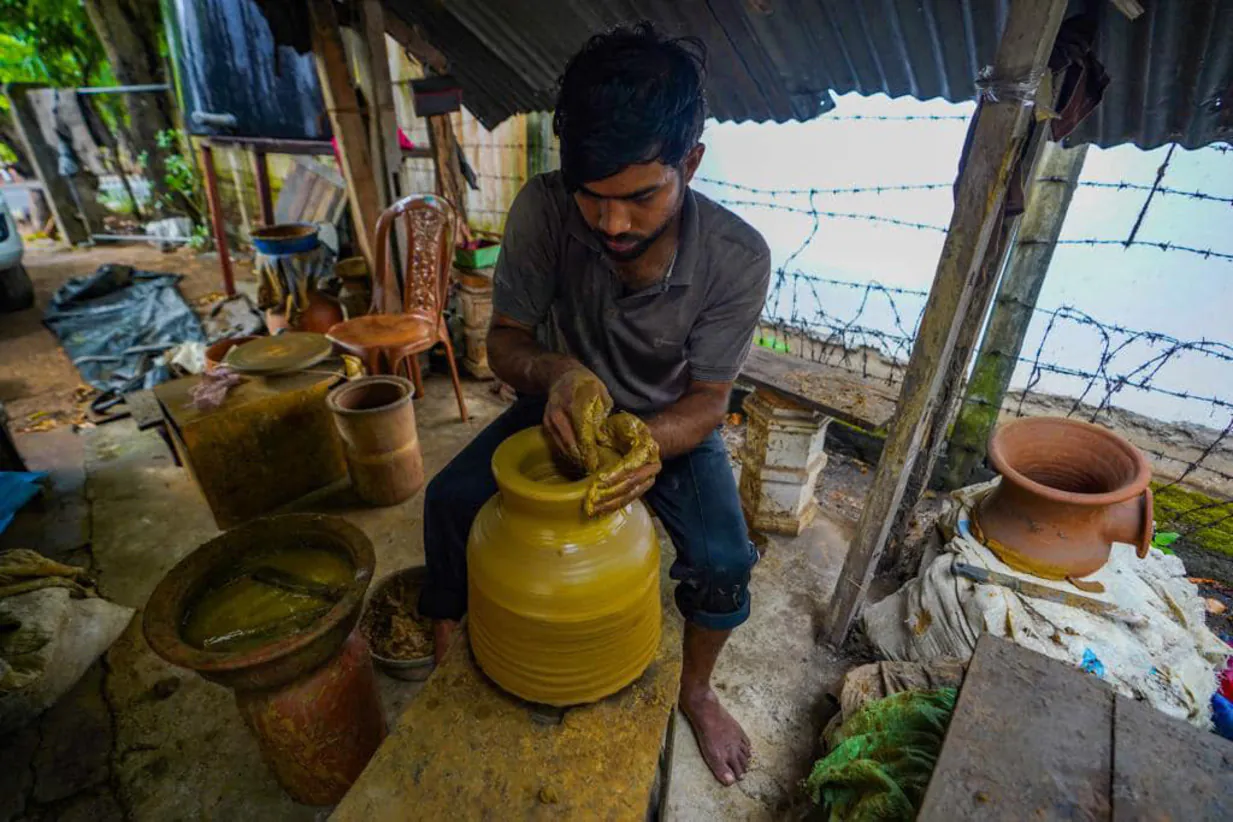
Sri Lanka, an island nation steeped in rich history and vibrant culture, boasts a diverse range of traditional art forms. Among them, pottery stands out as a testament to the country’s ingenuity and deep connection to its natural resources. For centuries, Sri Lankan potters have transformed clay into functional and beautiful objects, weaving stories and rituals into their craft.
The foundation of Sri Lankan pottery lies in the island’s diverse clays. Red clay, the most common, imbues pots with a warm, earthy hue. White clay, found in pockets near Meetiyagoda, lends itself to delicate designs and intricate carvings. Kaolin, a prized clay known as ” Kirimeti, ” adds a touch of elegance to Gurugal pottery , a unique style that incorporates powdered “Guru stone” for a distinctive speckled effect.
The potter’s wheel, locally called “Sakaporuwa” is the centerpiece of the craft. Skilled hands guide the clay, coaxing it into shapes that range from utilitarian water pots and cooking vessels to decorative plates, lamps, and figurines. Traditional designs often depict floral motifs, geometric patterns, and auspicious symbols like elephants and lotus flowers.
If you find yourself in Sri Lanka, immersing yourself in the world of traditional pottery is an unforgettable experience. Visit a village workshop, witness the transformation of clay under a potter’s touch, and perhaps even try your hand at shaping your own piece of Sri Lankan history. Remember, each pot is not just an object; it is a vessel of tradition, a testament to the enduring spirit of Sri Lanka’s artistic legacy.
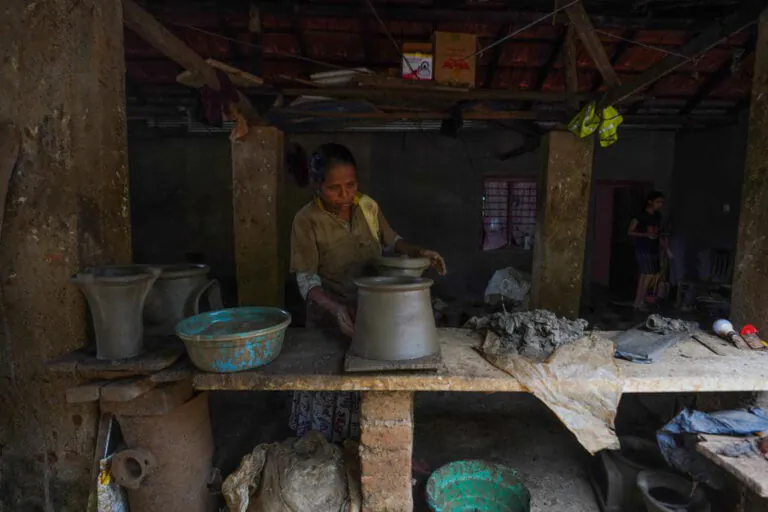
There are many pottery villages scattered throughout Sri Lanka, such as Nattandiya, Wariyapola, Ibbagamuwa, Kegalle, and Dankotuwa. In these villages, you can watch the potters at work, learn about the different stages of the pottery-making process, and even try your hand at making your own pot.
when you are travel with Ceylon silk route, we arrange real authentic Sri Lankan village pottery experience in Ibbagamuwa. On your way to Dambulla. These traditions is passed down from generation to generation, the region has its own unique style and techniques.
Learn about the different types of clay used in Sri Lankan pottery. The most common type of clay is red clay, but potters also use white clay, black clay, and a mixture of clays. Get an idea of , for what and how they use.
Throughout the pottery experience accept the real Sri Lankan authentic village hospitality. Wear Sri Lankan traditional working clothes. For Ladies ” Cheetta Redda ‘” And for Gentlemen “Sarrom”. Not only that here come some beverages. Sri Lankan Herbal drink or Ceylon Tea with jaggery. They serve in coconut shells. Yes they use coconut shells as there cups. Try some Sri Lankan sweets. “Kokis”, “Aasmee”, “Oil cake” and “Wandu”. It will give you a real Sri Lankan travel experience.
Don’t Forget to buy a piece of Sri Lankan pottery. Sri Lankan pottery makes a beautiful and unique souvenir. It’s just small amount. But it will help them. In your hand its contribute to sustainable project. More than just souvenirs, each piece of Sri Lankan pottery carries the spirit of its maker and the echoes of tradition. Choose a hand-painted plate, a textured vase, or a whimsical figurine – a unique reminder of your earthen adventure.
So, take a moment to appreciate the beauty and history held within each earthenware creation. Let Sri Lanka’s traditional pottery inspire you to connect with the earth, celebrate cultural heritage, and perhaps, even discover your own artistic spark. So, pack your bags, unleash your creativity, and embark on a Sri Lankan pottery pilgrimage. This travel adventure promises not just souvenirs, but memories etched in clay, experiences that resonate with the rhythm of the potter’s wheel, and a deeper connection to the island’s vibrant soul.
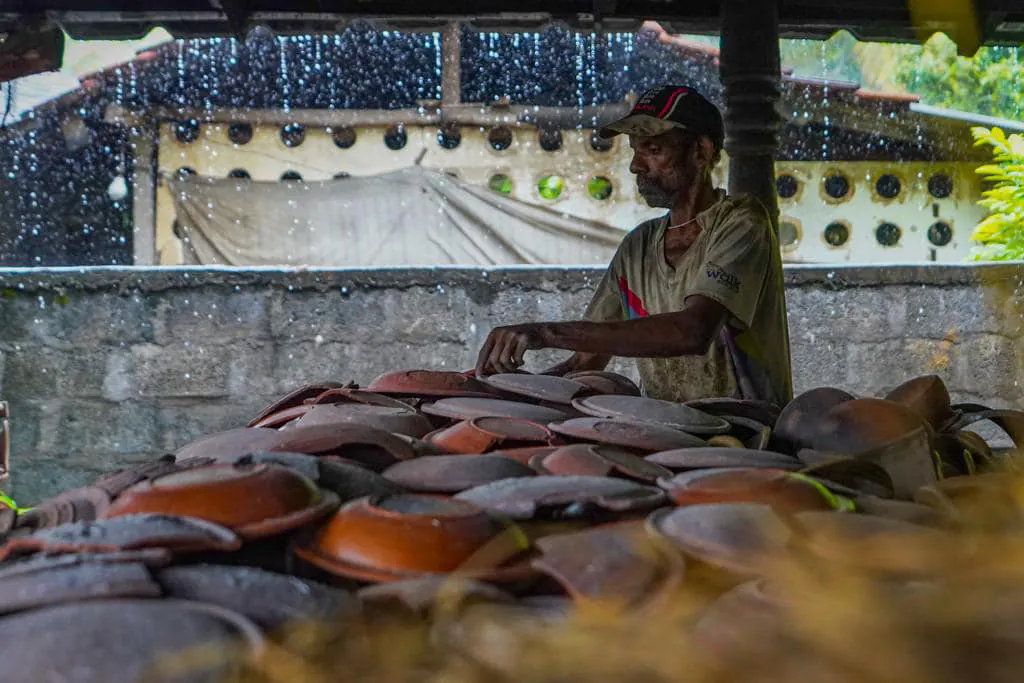
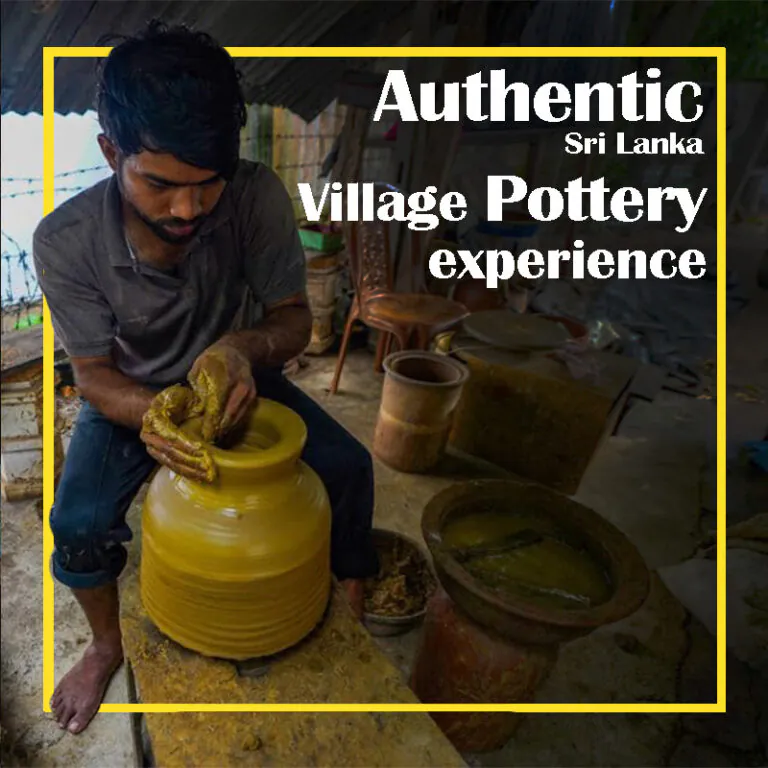
On your way to Dambulla or Anuradhapura take a short village pottery experience in Ibbagamuwa. We believe learning from a local family justice the real authentic experience to the guest. It will be 2-hour to 5 hours session.
Real Sri Lankan Authentic village experience in 4 days. Immerse yourself in rural life by staying with a local family in a village homestay. You’ll experience traditional cooking, participate in daily activities like farming or fishing, and gain firsthand insights into local customs and traditions. Learn the secrets of Sri Lankan cuisine by taking a cooking class from a local expert. You’ll not only gain valuable culinary skills but also connect with the people and culture through food. Look for classes offered in homes and local restaurants. Participate in a puja (worship ceremony) at a Buddhist temple.
Observe the rituals, receive blessings from monks, and experience the serenity of spiritual life in Sri Lanka. Remember to dress modestly and respect the sacredness of the space. Shop at local markets, buy souvenirs from artisan creators, and dine at family-run restaurants. This not only supports the local economy but also allows you to interact with the community directly. Remember, authenticity is often found in the small moments and genuine connections. Be open, respectful, and curious, and you’ll discover the true essence of Sri Lankan life.
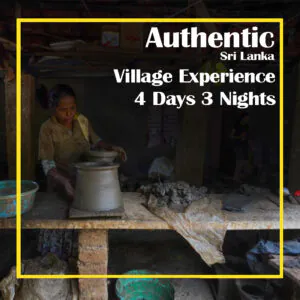
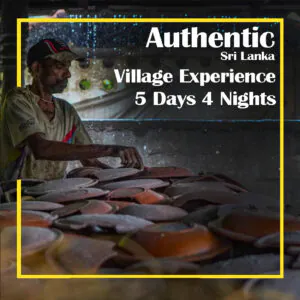
WhatsApp us